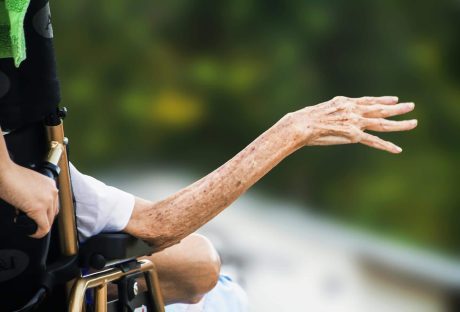Social change is the transformation of cultures and institutions through human interactions and relationships. It is an ever-evolving process and has an overwhelming long-term impact on society.
Unfortunately, many people and influential forces try to resist change in the status quo. But, change is constant.
Three things trigger change:
Conflict:
Conflict is a constructive force as it prompts required adjustments by indicating the presence of an issue.
Inequalities, racism, failure to provide justice, religious intolerance, and status quo give rise to anger and anarchy. People come forward to address the issues raised due to conflicts. Governments get overthrown or restructured because of these conflicts.
Demographic Change:
Demographic change refers to the transition from high to low birth and death rates. When society’s demographic composition shifts, change becomes inevitable. A larger population affects the quality and quantity of resources. The demographic change occurs either by the variations in birth and death rates or migration and immigration.
Cultural Change:
Cultural change takes place by adding new elements to the existing culture. It opens up new ways, inventions, discoveries, and ideas of living. Innovation and interaction with other societies also contribute to cultural change. It is essential because it helps in modernization and acceptance of new and better ways of life.
Ways to bring Social Change:
To bring social change, one must have adequate knowledge and understanding to address societal issues that create differences.
It is also fitting to understand the role of social work and workers in the larger scheme of things. If you are interested in contributing, consider enrolling in accredited masters in social work programs to gain skills and create positive change for better well-being.
These programs enable students and professionals to learn ways to help in adult mental health, child protective care services, and formulating social policies.
With that said, the following are some commonly raised issues to be sorted out to help the ones in need.
1. Increase literacy:
Access to primary education is the right of every human. The role of education is significant in healthy and democratic societies.
The Social Change model combines learning and community development by teaching literacy skills, cultural expressions, and analytical thinking to the individuals and collective group. Many changes happen in the social sector, but they are unsuccessful in practice because of a lack of education.
Thus, education is required to bridge this gap. It is supposed to change people’s attitudes and beliefs and instill a desire for success in them.
Education helps in awareness, problem-solving, and decision-making. Increasing access to primary education in poverty-stricken areas has proven beneficial in raising living standards and growing employment opportunities.
Thus, social work efforts must focus on expanding opportunities to meet the needs of those who have limited access to quality education with minimal barriers. As an educated individual, consider taking out time to teach others and spread your knowledge. And this brings us to the next point.
2. Volunteer in your community:
Volunteering is an act of virtue, per se. Volunteering in your community expands equitability in society. It helps a person learn new skills, enhance connectivity in the community, and advance their career.
It provides a sense of achievement and allows one to have self-confidence. We often think volunteering requires a lot of time and energy. But that is not the case. You can dedicate as much or as little of your time as you wish. No matter the differences, volunteerism in your community is always beneficial and gratifying.
You can support NGOs and other charitable organizations by volunteering your time. By serving meals, planting trees, tutoring children, or caring for aged and terminally ill patients – you can volunteer in numerous ways. These simple acts can make a profound impact on society.
3. Donate for a cause:
People usually look for charitable causes and then give money. It seldom happens that people become desensitized towards such initiatives.
However, donations do not necessarily have to come in monetary form. Clothes, shelter, food, books, and even organs are all forms of contribution.
Donations allow the donor to have an increased sense of self-worth. Philanthropists worldwide help promote social change by providing funds or advocating reforms.
It significantly helps in the efficiency of non-profit organizations. By maximizing the resources available, philanthropy helps in strengthening the economy and encourages social innovation. It helps boost employee morale and customers’ brand loyalty in the long run.
4. Encourage kindness:
Acts of kindness and altruism will help you feel good. Small random acts of kindness have a substantial impact on social change.
Smiling and greeting people, picking stones from the way, a caring attitude, spreading positivity and hope, and complementing are examples of kind gestures that require little to no effort. One can practice kindness by performing small selfless acts. Consider how you can construct explicit mappings in the world to improve the actions of people around you.
People are more likely to support strangers if they previously have been observed acting kindly. It has positive psychological effects on well-being. Helping others not only feels good, but it also has health benefits. Even helping others via donations is an act of kindness. Kindness begins with the ability to empathize with others, to put yourself in their shoes, and understand the challenges they face.
Conclusion:
COVID-19 has brought disastrous changes to the world. Under the haze of anxiety, fear, we are inundated with tales of compassion, voluntary action, and daily heroism. By helping others, we build a strong society. The pointers mentioned earlier will help you decide how to help others and bring radical changes to the community.
Read Also:
- How Does Smoking Weed Affect The Society
- Reasons to Support Nonprofit Organizations That Help Save the Environment
- Six Main Reasons Why You Need to Care for Environment


























